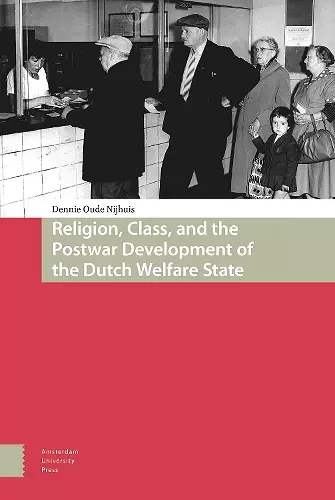Religion, Class, and the Postwar Development of the Dutch Welfare State
Format:Hardback
Publisher:Amsterdam University Press
Published:14th Aug '18
Currently unavailable, and unfortunately no date known when it will be back

This book examines how the Netherlands managed to create and maintain one of the world’s most generous and inclusive welfare systems despite having been dominated by Christian-democratic or ŸconservativeŒ, rather than socialist dominated governments, for most of the post-war period. It emphasizes that such systems have strong consequences for the distribution of income and risk among different segments of society and argues that they could consequently only emerge in countries where middle class groups were unable to utilize their key electoral and strong labor market position to mobilize against the adverse consequences of redistribution for them. By illustrating their key role in the coming about of solidaristic welfare reform in the Netherlands, the book also offers a novel view of the roles of Christian-democracy and the labor union movement in the development of modern welfare states. By highlighting how welfare reform contributed to the employment miracle of the 1990s, the book sheds new light on how countries are able to combine high levels of welfare generosity and solidarity with successful macro-economic performance.
'Oude-Nijhuis's book on the Dutch welfare state stands out as one of the most astute and comprehensive studies ever of social policy evolution in a capitalist democracy. Because of its fine-grained historical research and careful analysis, comparativists have in it a model for future research and thinking on the capitalist welfare state.' - Peter A. Swenson, BA Princeton University, Ph.D. Yale University, is Yale's C.M. Saden Professor of Political Science
ISBN: 9789462986411
Dimensions: unknown
Weight: unknown
340 pages